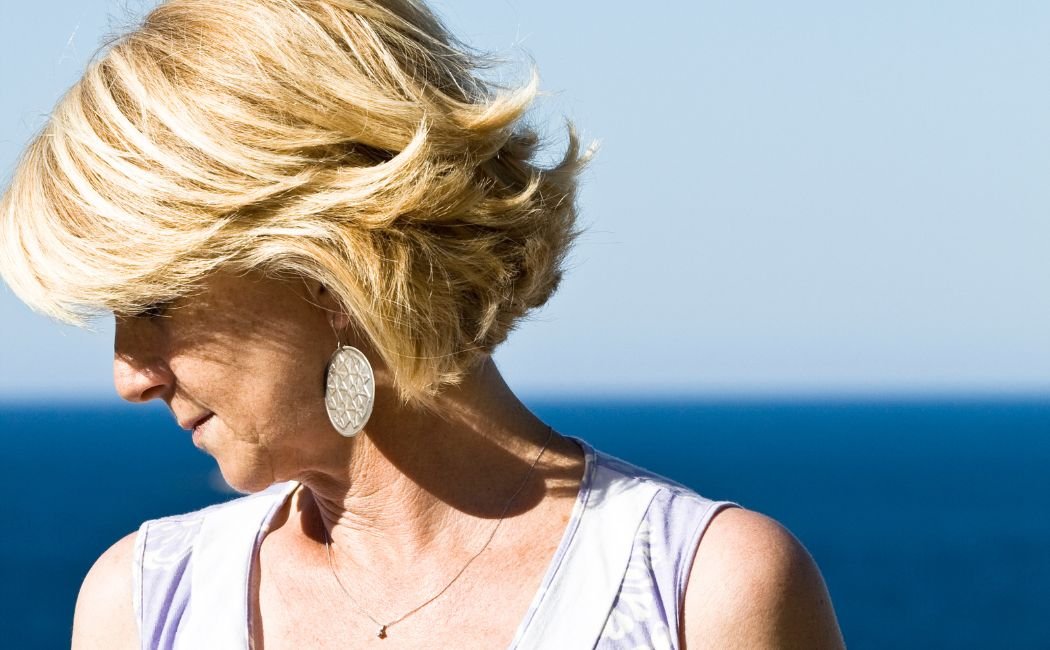Part One - The Menopause and How it affects your Skin
Just as it did during puberty and pregnancy, the hormonal changes during the menopause can have a huge impact on your skin. That might mean your skin is dryer, duller, more sensitive or thinner. Repair takes longer because the rate of skin cell renewal is slower - this leads to blemishes taking longer to heal.
These signs show in our skin, hair and nails, as well as our bones, muscles and waistlines. And what's worse - we can't prevent it.
But you can switch the products you use to counteract some of the symptoms you are experiencing.
Let's look at some of the main issues:
Acne
Menopausal acne is brought on by reductions in the female hormonal levels and an increase in some others such as testosterone. HRT therapy can help this for some women, but it is different for every woman. You may also find salicylic acid skincare helpful if you are experiencing breakouts.
Also remember stress plays a key role, so you need to factor relaxation and rest into your weekly routine.
Products to try:
Neutrogena Clear & Defend Face Wash - with salicylic acid for spot prone skin
Dryness/Increased Sensitivity
Many women report increased dryness and/or sensitivity, during and after the menopause. Oestrogen plays a key part in the production of collagen - when that slows down it affects the texture, tone and elasticity of the skin. You may experience this on your face but your body too - chest, shoulders, legs and so on.
To combat this look for skincare with hyaluronic acid and ceramides on the ingredients list. Hyaluronic acid is known as a humectant - meaning it pulls water from the atmosphere to plump up the outer layers of your skin. This gives you the moist, dewy appearance we all seek. It also help lines and wrinkles to appear less prominent.
It is essential that you apply it correctly. Usually hyaluronic acid takes the form of a serum. You should apply to clean, damp skin and then lock it in with moisturiser and a facial oil. Don't add it after sunscreen or moisturiser - it needs to sit on the top layer of your skin to work effectively. Moisturisers designed for very dry skins will have emolients to lubricate skin, so that's worth looking at too.
An absolute no no is very hot baths and showers - they can rob your skin of essential oils - so go for warm water. Apply moisturiser immediately after washing while the pores are still open and able to absorb and retain the product.
Diet can also play a vital role. Hyaluronic acid and collagen supplements can be taken - they come in tablet, powder or liquid shot format, to be added to food. Foods rich in vitamin C, such as kale, spinach, tomatoes and citrus fruits, and other vibrant fruits and vegetables such as beetroot, red peppers and berries, are all helpful.
Of course, you know I am also going to tell you again about the importance of water. it is easy when you are busy to forget to drink. Start by trying to build it into your morning routine. If you are office based coffee or tea may be part of your work ritual, but try to swap some of that out for bottles of water. Not only does it hydrate your skin, but it helps to control food cravings, and keep your body healthy too.
Itchiness
Skin sensitivity and dryness often leads to itchiness. Don't scratch as it can lead to a rash, scarring and thinning - as you remove layers of skin. Hormone therapy treatments that increase oestrogen levels can help to reduce irritation.
Product to try:
if you have itchiness on your body then try Bioderma Atoderm Ultra-Soothing Cream for Very Dry Skin - 500ml.
I will talk more about the menopause and how it affects your skin, plus recommendations for how to look after it next month.

